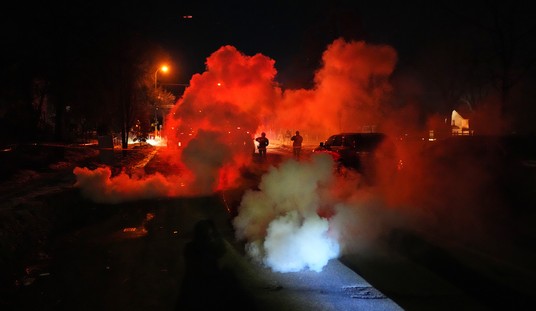The Taliban’s supreme commander in Afghanistan, Mullah Abdul Ghani Baradar, was captured in Pakistan earlier this year. He was the highest ranking Taliban commander ever arrested. But instead of his extradition to Afghanistan or hand-over to the U.S., he was kept in a cozy house in Islamabad.
On Saturday, he was freed.
Yes, the man second in command only to Mullah Omar, the one-eyed leader of the Taliban, has reportedly been released and no one knows where he went. (The smart bet is he rejoined his buddies in the fight against NATO and the Afghan government.)
Apparently, his release has the backing of the Obama administration, the reason being the ongoing “talks” between the Taliban and the Afghan government. This is not the first time the Afghan government has claimed it has been holding talks with the Taliban. For years, President Hamid Karzai’s government has been attempting to negotiate with the Taliban. But every single time, a few headlines are made out of how he’s reaching out to them and how they’re talking back, then, nothing.
It’s easy to lose count of the number of times the Taliban have held talks with the Afghan government and at the same time unleashed terror all over the country. But these talks, according Gen. David Petraeus, the top U.S. military commander in Afghanistan, are just preliminary and cannot even be considered “negotiations,” the Associated Press reports.
Furthermore, the current talks are being touted as attacks in Afghanistan continue. During the parliamentary elections of last month, there were hundreds of Taliban attacks. Taliban allies have been burning Coalition supply trucks across the border in Pakistan the past few days as the border remains sealed and fuel trucks are backed up for miles. NATO soldiers are being killed and injured on a weekly basis in the bloodiest year of the war. To top it off, there is no formal indication from the Taliban that they are in any kind of negotiations. And here we are releasing their top commander so that his captivity won’t disrupt the “talks.”
These “talks” apparently are so far only confined to the imagination of the Afghan government and the trust that Gen. Petraeus has in their word. The Associated Press boldly asserts in a piece published on Saturday that,
In Afghanistan, Taliban leaders have told followers that there are no official peace talks with the U.S.-backed Afghan government, an apparent move to persuade their rank- and-file to stay in the fight.
Now if the Taliban were on the losing side of the fight, it would be understandable. But they’re not. They’ve taken over most of the countryside in the south and the east after losing all of the country in 2001. They’ve stepped up their attacks on NATO and its allies. The Afghan government has lost control over huge swaths of the country and is increasingly viewed as weak and on the brink of collapse. NATO has been forced to add more troops to the country to win back areas it has lost, or has won back and lost again. All signs show that the Taliban are winning.
Why, under these circumstances, would the Taliban want to talk in the first place, much less initiate those talks and then hide it from their followers so they won’t get disheartened? The same AP story goes on to include an interview with a Taliban commander about this issue:
Amanullah Mujahid, a 31-year-old Taliban fighter who was reached by AP in the Afghan province of Zabul, said that when he heard that the U.S. said Taliban leaders had been talking to the Karzai government, he and his fellow fighters were disheartened.
He said their spirits were lifted when the Taliban leadership sent a message to his commanders denying involvement in any talks. “Now we know that NATO is just using such propaganda to divide us,” he said.
Indeed, if the Taliban initiate talks, they will dishearten their comrades. Why would they take such a risk at such a critical juncture? With a deadline of U.S. departure from Afghanistan looming over their heads, the Afghan government is much more willing to negotiate with the enemy than the Taliban are to negotiate with the Afghan government.
The truth is that NATO needs a reality check. Releasing terrorists while their organization is continuously taking part in violence isn’t diplomacy. It’s insane. Here they are killing your soldiers, burning your supply lines, and bombing civilian targets — and you are releasing their top fighter Mullah Baradar because you think they are ready to negotiate when they are screaming at the top of their lungs that they aren’t?
What do NATO and the Afghan government get in return for the release of such a high-priced captive? A swap where we get American soldiers or other hostages in return? A temporary halting of hostilities? No, we get nothing. We simply get hope that the peace talks — confirmation of which only the Afghan government and Petraeus can provide — might produce some kind of results. And the Taliban get their supreme commander back.
The result of the first round of these peace talks is already in. Taliban: 1; NATO plus Afghan government: 0.
I doubt the second round would be any different.









Join the conversation as a VIP Member